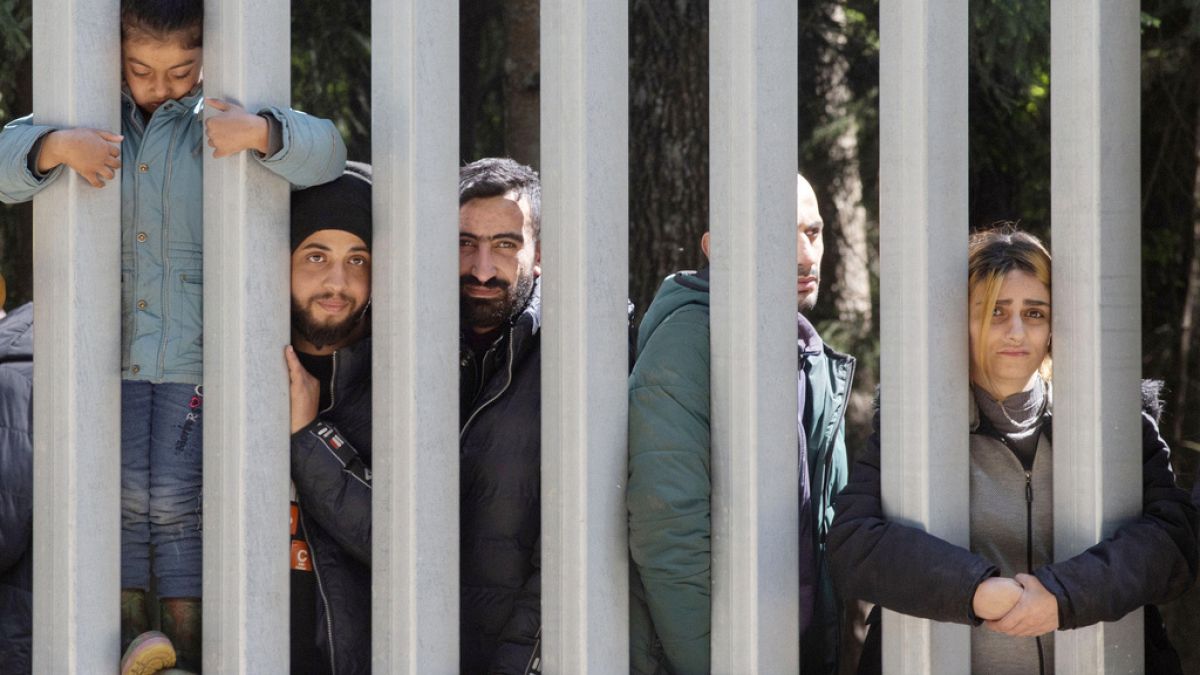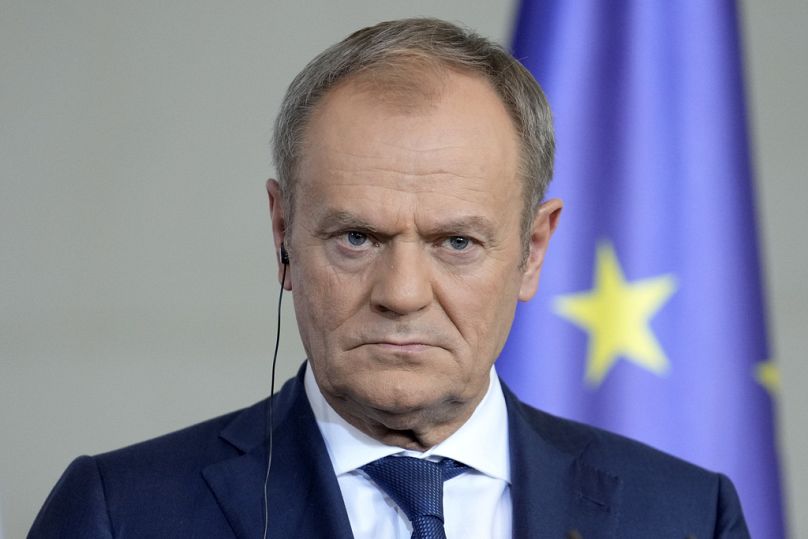
Polish Prime Minister Donald Tusk pledged to do more to strengthen security along its entire eastern frontier when he travelled to the border with Belarus on Saturday.
Tusk accused Belarus, Russia’s ally, of intensifying what he called a “hybrid war” against the West by encouraging migrants to try to cross into the EU.
He vowed that Poland would spare no expense on its border security.
“I know that there are more and more illegal crossings every day,” Tusk told reporters at the border, where he met with Polish army soldiers, border guard officers and police.
He also cited “the growing threat resulting from the Russian-Ukrainian war, Russia’s aggression against Ukraine and the uncertain geopolitical situation.”
The visit to the border is Tusk’s first since he took office in December and comes after a Polish judge defected to Belarus this month. Officials have denounced the judge as a traitor, and he is being investigated on suspicion of espionage.
Tusk considers his approach
Tusk took over from the Law and Justice or PiS party, known for its standoff with the European Union over rule of law issues. The previous party took a strong stance against migration, setting it at odds with other European allies when it first took power in 2015.
Since then, though, the general mood against migration across Europe has toughened.
While Tusk is more moderate over migration than some of his predecessors, he opposes unregulated migration.
During his visit, Tusk said: “This is not only Poland’s internal border, but also the border of the European Union. Therefore, I have no doubt that all of Europe will have to — and I know that we will achieve this — invest in its security by investing in Poland’s eastern border and in the security of our border.”

The visit comes weeks before June’s European elections and Tusk seemed intent on sending a message to voters that his political party, Civic Coalition, favours border security and supports the uniformed officers there.
“I came today primarily so that both commanders and their subordinates have no doubt that the Polish state and the Polish government are with them in every situation, here at the border,” he said.
In 2021, large numbers of migrants from the Middle East and Africa began arriving along the EU’s eastern border with Belarus. The EU then accused Belarusian leader Alexander Lukashenko of encouraging the migration to destabilise the EU after it imposed sanctions on the country for an election widely viewed as fraudulent.
Poland’s previous government responded to the crisis by constructing a tall steel wall.





